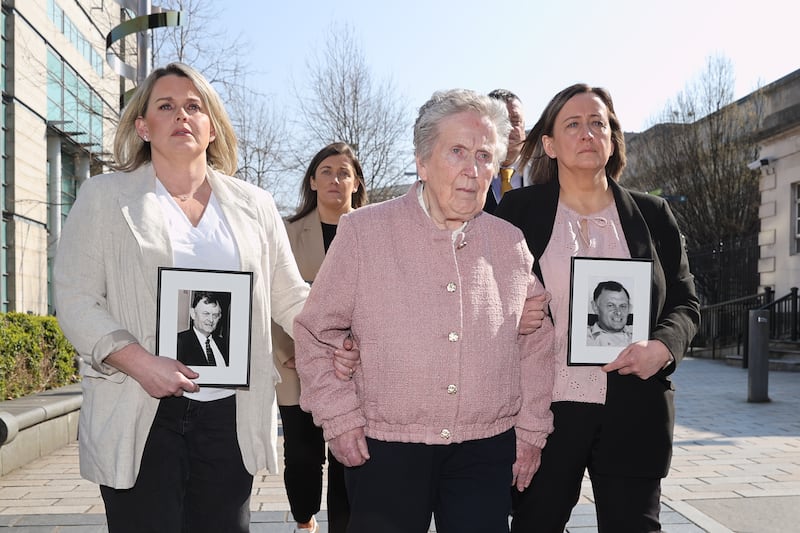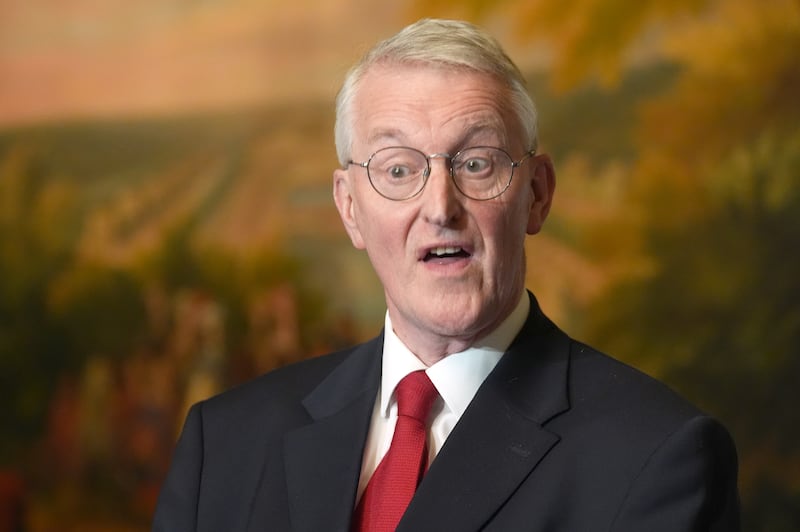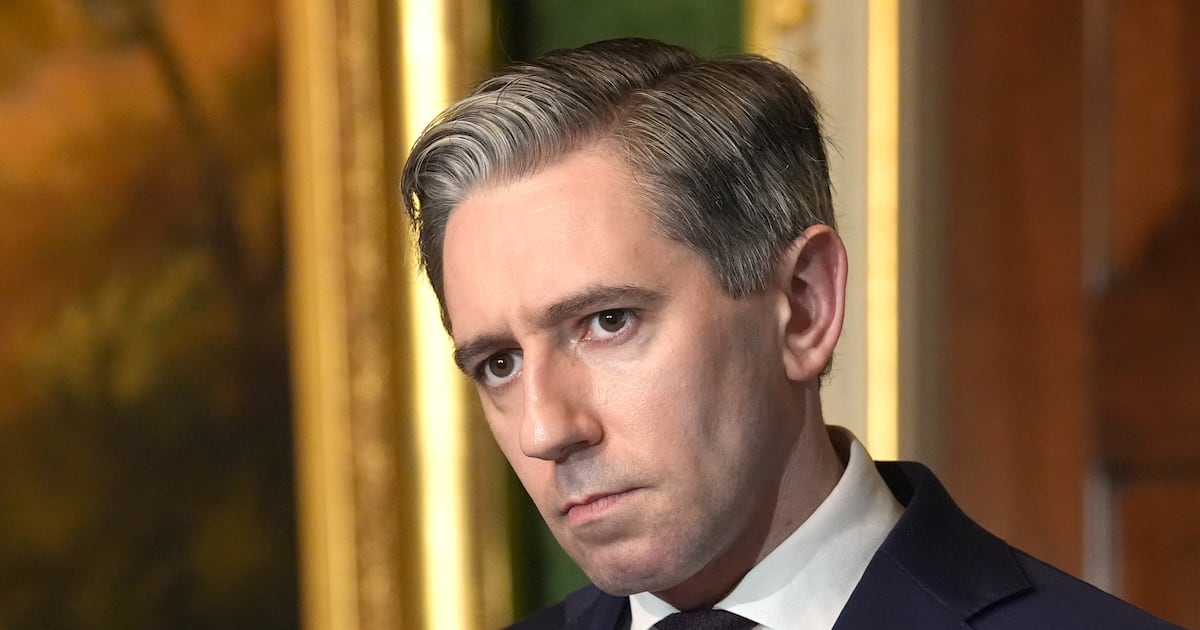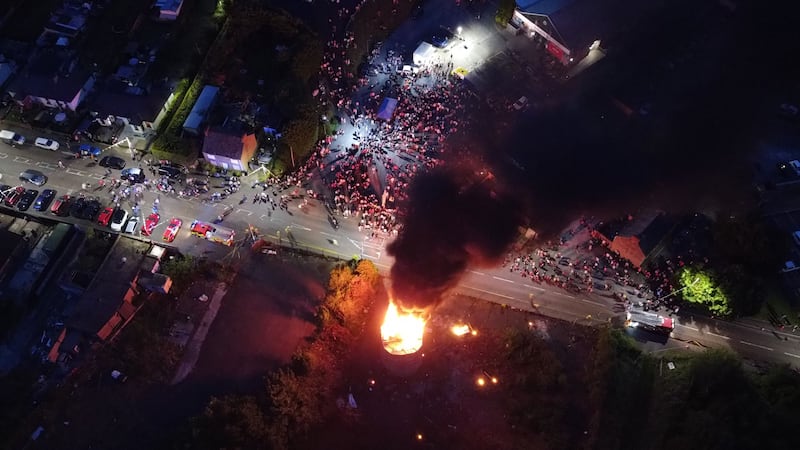The family of murdered GAA official Sean Brown has waited “too long” for truth and justice, Ireland’s deputy premier Simon Harris has said.
Speaking after a meeting of the British-Irish Intergovernmental Conference at Hillsborough Castle on Thursday, Northern Ireland Secretary Hilary Benn again insisted he wanted a full and independent investigation into the murder.
Mr Brown, 61, chairman of Bellaghy Wolfe Tones GAA club in Co Derry, was ambushed, kidnapped and murdered by loyalist paramilitaries as he locked the gates of the club in May 1997.
 The family of Sean Brown at a recent court hearing (Liam McBurney/PA)
The family of Sean Brown at a recent court hearing (Liam McBurney/PA)
No-one has ever been convicted of his killing.
Earlier this month, three judges at the Court of Appeal in Belfast said the Government’s failure to order a public inquiry into the murder was unlawful and gave Mr Benn four weeks to “reflect upon the judgment” before another hearing.
The UK Government has to respond by May 2.
Asked if he had come to a decision on responding to the court judgment, Mr Benn said he was continuing to consider it.
He said: “I shall respond to them in due course.
“I want there to be a full, independent, thorough investigation into the appalling murder of Sean Brown.”
Mr Harris said: “I think the Brown family have waited too long for truth, they have waited too long for justice.
“I fully respect the court process and the process that the Secretary of State needs to go through now.
“My engagement with the Secretary of State, with the Northern Ireland Office, has been in good faith on the issue of legacy.
“I think far too many families in Northern Ireland, far too many families across these islands, have waited far too long for truth, for justice.
 Secretary of State for Northern Ireland Hilary Benn (Brian Lawless/PA)
Secretary of State for Northern Ireland Hilary Benn (Brian Lawless/PA)
“That is why I am absolutely determined that we do everything we possibly can to see if we can reach an agreement on a mechanism that is vastly different to the one available today in terms of how we address the legacy of the past.
“One that is human rights compliant, one that is victim-centred and one that provides information, answers, truth, in a way that the structures in place today simply don’t have the confidence of so many.”
Last year a coroner halted an inquest into the Brown killing, expressing concern that his ability to examine the case had been “compromised” by the extent of confidential state material being excluded from proceedings on national security grounds.
Preliminary inquest proceedings had already heard that more than 25 people had been linked by intelligence to the murder, including several state agents.
It had also been alleged in court that surveillance of a suspect was temporarily stopped on the evening of the killing, only to resume the following morning.


